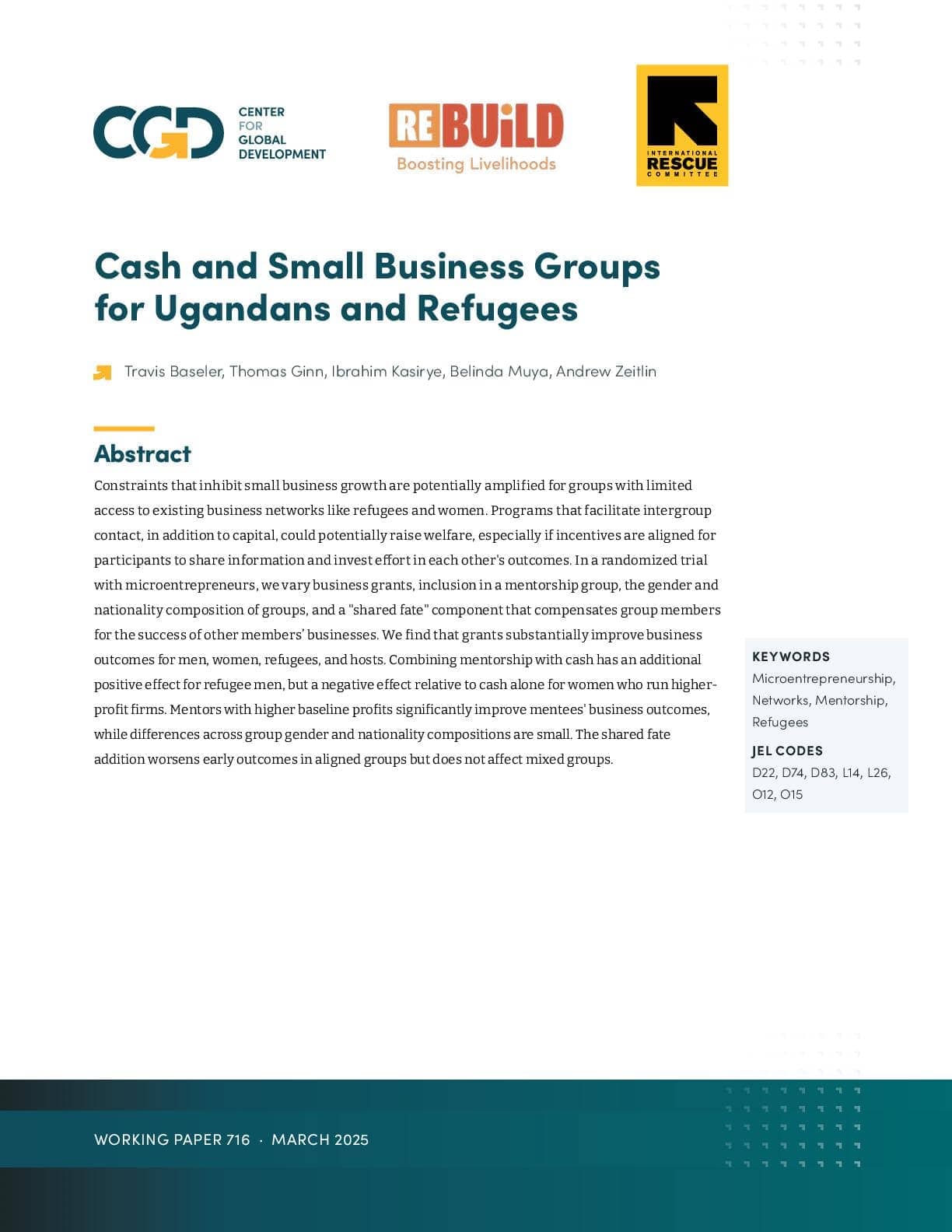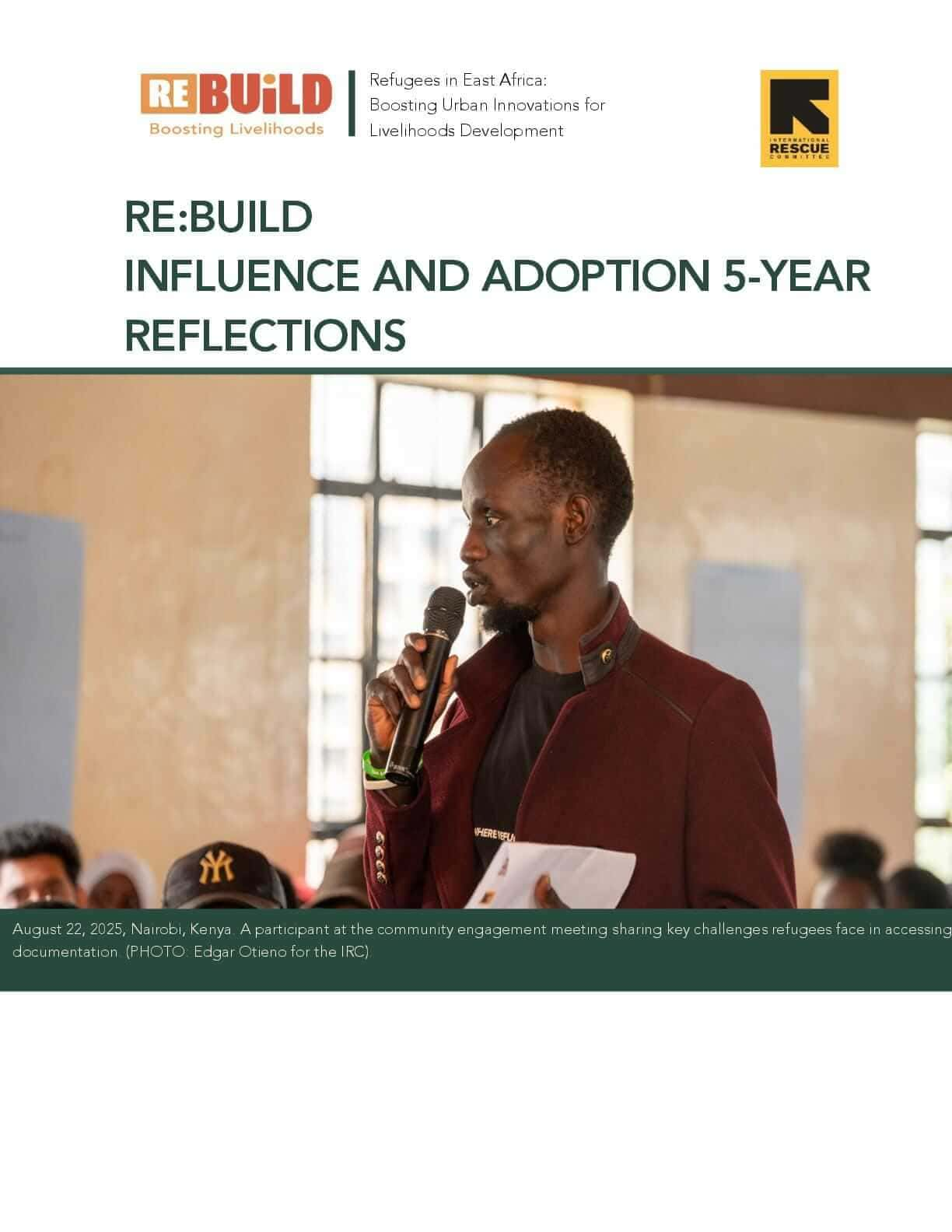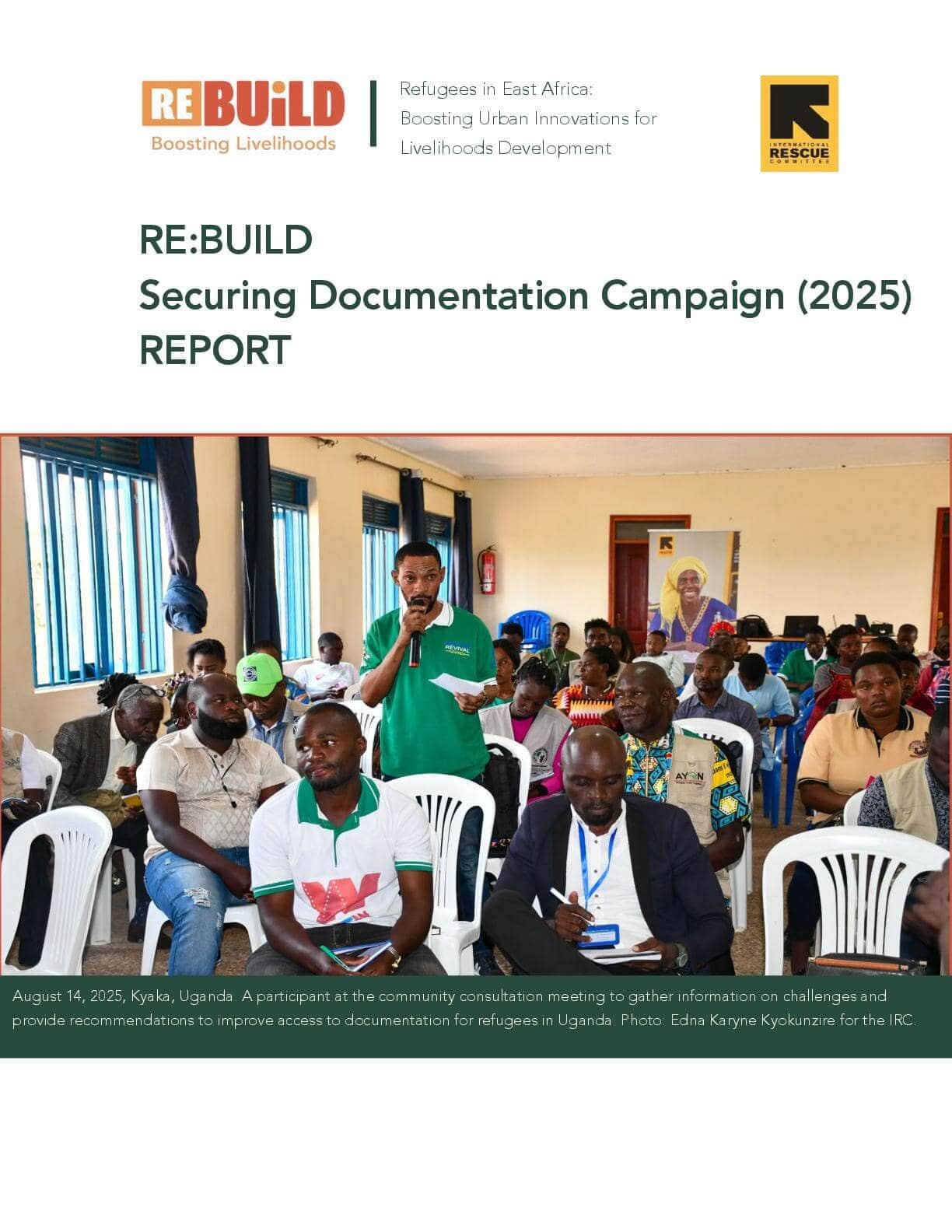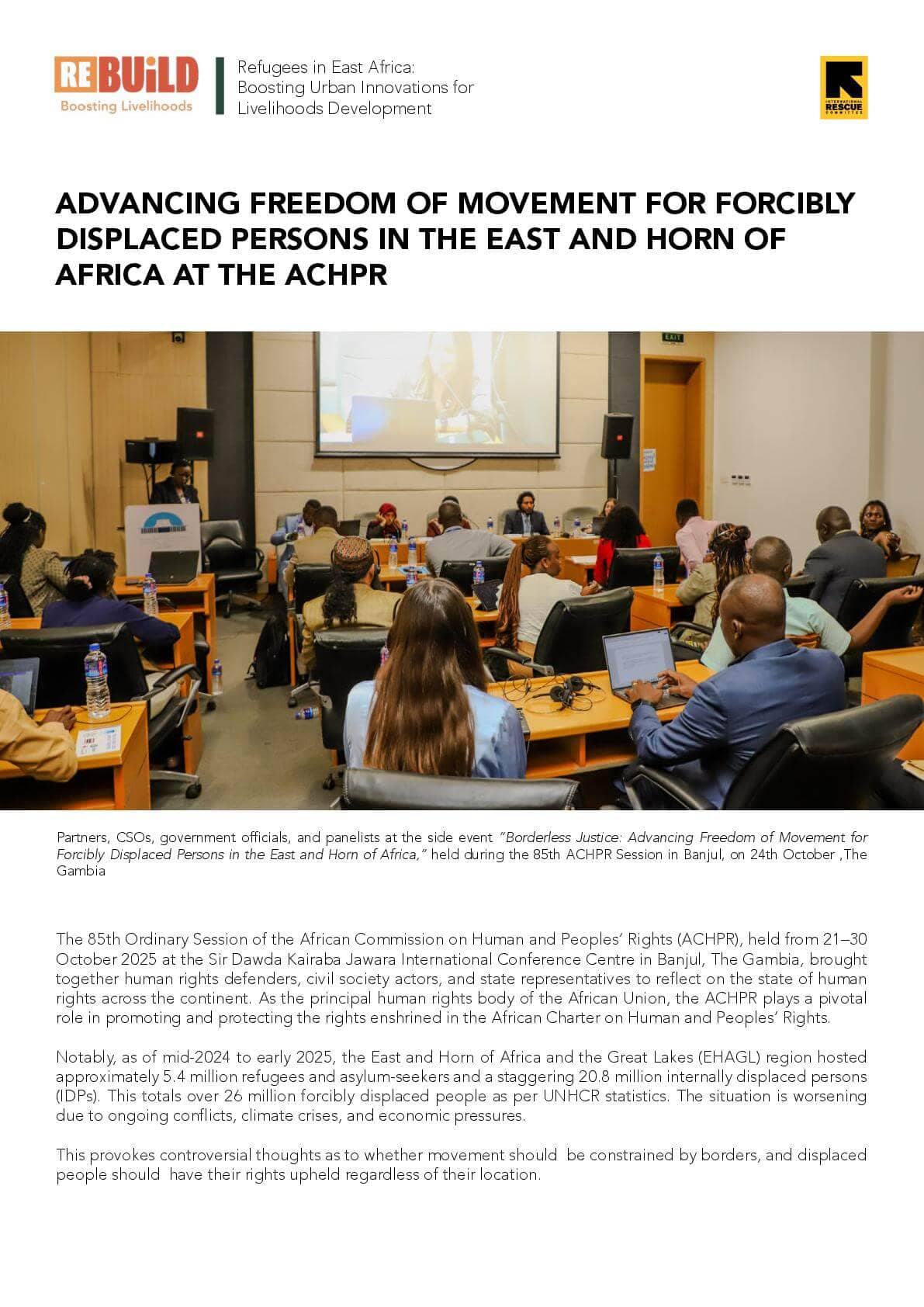Cash and Small Business Groups for Ugandans and Refugees
Cash and Small Business Groups for Ugandans and Refugees
Constraints that inhibit small business growth are potentially amplified for groups with limited access to existing business networks like refugees and women. Programs that facilitate intergroup contact, in addition to capital, could potentially raise welfare, especially if incentives are aligned for participants to share information and invest effort in each other's outcomes. In a randomized trial with microentrepreneurs, we vary business grants, inclusion in a mentorship group, the gender and nationality composition of groups, and a "shared fate" component that compensates group members for the success of other members’ businesses.
We find that grants substantially improve business outcomes for men, women, refugees, and hosts. Combining mentorship with cash has an additional positive effect for refugee men, but a negative effect relative to cash alone for women who run higher profit firms. Mentors with higher baseline profits significantly improve mentees' business outcomes, while differences across group gender and nationality compositions are small. The shared fate addition worsens early outcomes in aligned groups but does not affect mixed groups.



